Mail Us
info@gulfcare-uae.com
Call Us
+971 4 327 8811
info@gulfcare-uae.com
+971 4 327 8811
Accurate, safe, and early detection of genetic conditions with NIPT test Dubai. Trusted by expecting parents for peace of mind.
At Gulf Care Diagnostic Center, we offer the best NIPT test in Dubai – a safe and accurate non-invasive prenatal testing option for expecting mothers. From as early as 10 weeks of pregnancy, this simple blood test screens for common chromosomal conditions such as Down Syndrome, Edwards Syndrome, and Patau Syndrome, while also revealing your baby’s gender with high accuracy.
Our NIPT test in Dubai packages are designed to suit different needs, with prices starting from AED 999 and ranging up to AED 3,000 depending on the selected panel. For your convenience, we provide both in-clinic and home sample collection, ensuring comfort and privacy throughout the process.
Results are typically available within 10 to 15 days, giving you peace of mind during your pregnancy journey. Choose Gulf Care Diagnostic Center for trusted expertise, affordable pricing, and the most reliable non-invasive prenatal testing in Dubai.


Conditions screen for :
Trisomy 21
Trisomy 13
Trisomy 18
Other Chromosome Aneuploidy
Sex Chromosome aneuploidy
Monosomy XO
XXX
XYY
XXY
Baby Gender
99.9% Accuracy As early as 10 Gestational weeks. Test Result as early as 7 to 10 days
AED 2000 AED 999

Conditions screen for :
99.9% Accuracy As early as 10 Gestational weeks. Test Result as early as 7 to 10 days
AED 3500 AED 1800
Babies with Down syndrome have three copies of chromosome 21 and have intellectual disabilities that range from mild to severe. Children with Down syndrome will need extra medical care depending on the child’s specific health problems. Early intervention has allowed many individuals with Down syndrome to lead healthy and productive lives. The presence of medical conditions, like heart defects, can affect the lifespan in these children and adults; however, most individuals with Down syndrome will live into their 60s. Miscarriage occurs in about 30% of pregnancies with Down syndrome while overall about 1 in 700 babies are born with Down syndrome.
Babies with trisomy 18 have three copies of chromosome 18 and have severe intellectual disabilities and birth defects typically involving the heart, brain, and kidneys. Babies with trisomy 18 can also have visible birth defects such as an opening in the lip (cleft lip) with or without an opening in the roof of the mouth (cleft palate), a small head, clubbed feet, underdeveloped fingers, and toes, and a small jaw. Unfortunately, most pregnancies with trisomy 18 will miscarry. If born alive, most affected babies with trisomy 18 will pass away within the first few weeks of life. About 10 percent survive to their first birthday. Trisomy 18 occurs in approximately 1 in 3,000 live births.
Babies with trisomy 13 have three copies of chromosome 13 and have severe intellectual disabilities. They often have birth defects involving the heart, brain, and kidneys. Visible abnormalities include extra fingers and/or toes or an opening in the lip, with or without an opening in the palate. Given the severe disabilities, most pregnancies affected by trisomy 13 will miscarry. If born alive, most affected babies with trisomy 13 will pass away within the first few weeks of life. About 10 percent survive to their first birthday. Trisomy 13 occurs in approximately 1 in 5,000 live births.
Babies with monosomy X are females who have one X chromosome instead of two. Unfortunately, a high proportion of pregnancies with monosomy X will result in a miscarriage in the first or second trimester of pregnancy. Babies with monosomy X that make it to term may have heart defects, learning difficulties, and infertility. In most cases, girls with monosomy X will need extra medical care including hormone therapy at various stages of life.
Boys with Klinefelter syndrome have an extra X chromosome (XXY). This condition can be associated with learning difficulties and behavioral problems. Men with Klinefelter syndrome may be infertile. About 1 in 1,000 babies will be born with Klinefelter syndrome.
Girls with Triple X syndrome have an extra X chromosome (XXX). Girls with this condition may be taller than average and may experience learning difficulties or behavioral problems. Approximately 1 in 800 girls will be born with an extra X chromosome.
Boys with Jacob’s syndrome have an extra Y chromosome (XYY). Most babies with XYY syndrome do not have any birth defects. Boys with XYY may be taller than average and have an increased risk for learning, speech, and behavioral problems. Approximately 1 in 650 boys will be born with an extra Y chromosome.
22q11.2 deletion syndrome, also called DiGeorge syndrome or Velo-Cardio-Facial syndrome (VCFS), is caused by a missing piece of chromosome number 22. About one in every 2,000 babies is born with 22q11.2 deletion syndrome. The majority of children with this disorder have heart defects, immune system problems, and specific facial features. Most children with 22q.11.2 deletion syndrome have mild-to-moderate intellectual disability and speech delays; some will also have low calcium levels, kidney problems, feeding problems, and/or seizures. About one in five children with 22q11.2 deletion syndrome have autism spectrum disorder; 1 in 4 adults with 22q11.2 deletion syndrome have a psychiatric illness, like schizophrenia.
Prader-Willi syndrome occurs when either a small piece of chromosome 15 is missing or when both copies of chromosome 15 come from the same parent (called uniparental disomy, or UPD). Babies with Prader-Willi syndrome have low muscle tone and problems with growth and feeding. Children with Prader-Willi syndrome have delayed milestones, short stature, rapid weight gain leading to obesity, and intellectual disability. About 1 in 10,000 babies are born with Prader-Willi syndrome.
Angelman syndrome happens when either a small piece of chromosome 15 is missing, or when both copies of chromosome 15 come from the same parent (called uniparental disomy, or UPD). About 1 in 12,000 babies are born with Angelman syndrome. Babies and children with Angelman syndrome have severe intellectual disability, delayed milestones, seizures, and problems with balance and walking.
1p36 deletion syndrome, also referred to as Monosomy 1p36 syndrome is caused by a missing piece of chromosome 1. Children with 1p36 deletion syndrome have intellectual disabilities. Most have heart defects and weak muscle tone. About half of affected individuals have seizures (epilepsy), behavioral problems, and hearing loss. Some children with 1p36 deletion syndrome also have vision problems or additional birth defects of other organs. About 1 in 5,000 newborn babies has 1p36 deletion syndrome.
A missing piece of chromosome 5 causes Cri-du-chat syndrome, also called 5p- (5p minus) syndrome. The name “Cri-du-chat” was given to this syndrome due to the high-pitched, cat-like cry that babies with this syndrome often make. Babies with Cri-du-chat syndrome typically have low birth weight, a small head size, and weak muscle tone. Feeding and breathing problems are common in infancy. Children with this disorder have moderate-to-severe intellectual disability, including speech and language delays. They may also have growth delays, behavior problems, and some have curvature of the spine (scoliosis). About one in every 20,000 babies is born with Cri-du-chat syndrome. They may also have heart defects, growth delay, behavior problems and some have curvature of the spine.
The Non-Invasive Prenatal Test (NIPT) at Gulf Care Diagnostic Center offers expectant mothers an early, safe, and highly accurate way to understand their baby’s health. It screens for common genetic conditions and can also determine your baby’s gender as early as 10 weeks of pregnancy.
High-Risk Pregnancies: Recommended for women above 30 years, those who have undergone IVF, or have a family history of genetic disorders.
First-Time Mothers: A great choice for early peace of mind and reassurance about your baby’s well-being.
Gender Detection: Find out your baby’s gender from 10 weeks with 99.9% accuracy.
Best Time to Take the Test: The ideal time to take NIPT is from the 10th week of pregnancy onward. Early testing allows better planning and timely medical decisions.
Simple & Quick Process: A small blood sample is collected from the mother’s arm—no fasting or special preparation required. The procedure takes less than 10 minutes.
After the Test: Your sample is analyzed in a certified laboratory, and results are ready within 7–10 days. You’ll receive a detailed medical report securely.


Excellent service of the Radiologist, nurse and the whole team. Very friendly and courteous.

Very professional and fast service, with really good prices. Highly recommended!

Good and fast service, easy to access this place as close to metro station, great experience during treatment. People working here is caring and helpful.

The service is very fast.My appointment is 11:30am,I arrive there at 10:30am and they entertain me immediately.The receptionists /nurse are so accommodative specially the Filipino guy,he assisted and guided me very well,No doubt to all Filipinos when it comes to service 🫡.Keep it up !

The staff nurse is kind and truly helpful throughout the process. Everything was taken care of properly with great attention to detail. I highly recommend their service.

Accurate diagnostics powered by advanced technology. We provide comprehensive imaging, laboratory, and preventive health services to support precise diagnosis and better patient care.
Please note that this website is for information purposes only and NOT any kind of advice and all information may or may not be suitable for you. All contents on this website are neither medical advice nor meant to substitute for consulting your doctor. A doctor referral or a pre-consultation is mandatory for all our health check-up packages and services.
Gulf Care Diagnostic Center a group of Grand infinity Healthcare Group
Copyright © 2025 Gulfcare-uae.com All rights reserved.
Lipid Profile
Lipid Profile
Hormones Check (4)